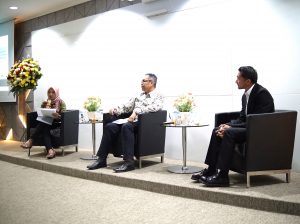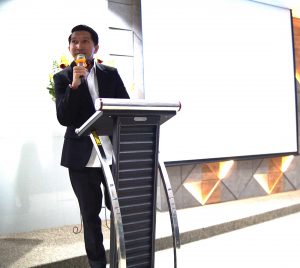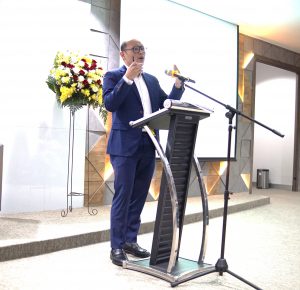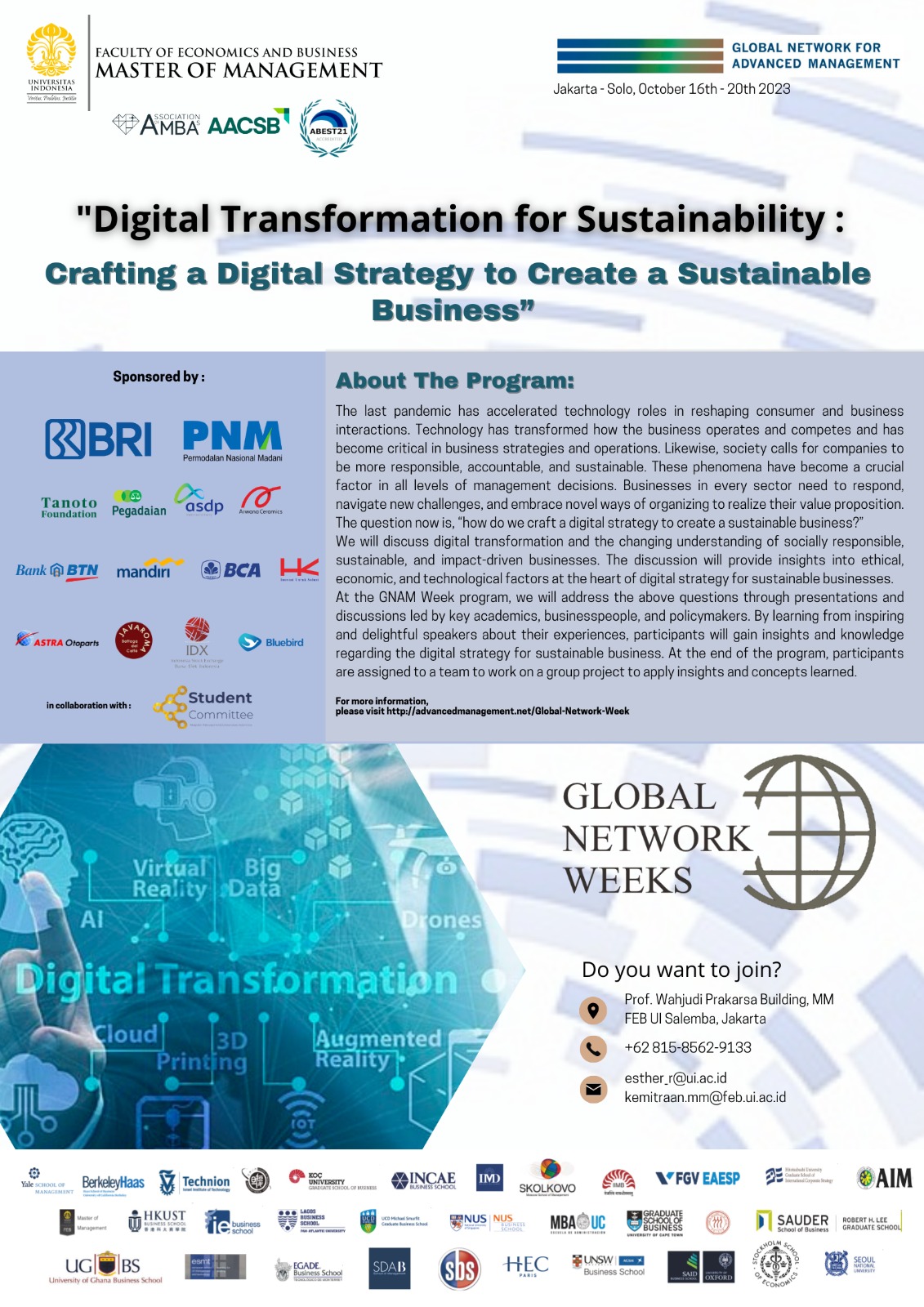GNAM Week MM FEB UI October 2023, Day 1, 2nd session
In the bustling after-break session at 13:15, Ms. Samantha, the MC, welcomed the attendees to delve into the transformative journey of digitalization in the transportation sector. The spotlight was on two pioneering organizations of State-Owned Enterprise: PT Perum Damri and PT Pelni, each with its unique narrative of evolution, moderated by Mrs. Yeshika Alversia, M.Sc.

Mr. Agus Hari Survijanto, as the Head of Corporate Planning & Risk Management of PT Perum Damri, stated that the company was established in 1946, serving as a testament to public service in Indonesia’s road transportation. Their extensive coverage spanned 4 key areas nationwide. Rooted in a rich legacy, Damri embraced digitalization, transitioning from legacy systems to cutting-edge applications. Their evolution was marked by milestones, from the introduction of cashless programs and online reservations to the implementation of robust e-ticketing systems and innovative DAMRI apps. Their digital transformation was not just about technology; it was about empowering employees, engaging customers, transforming products, and optimizing operations.
Damri’s core strategies were clear: fortify national connectivity, become a world-class road transport service, ensure sustainable business growth, and contribute significantly to environmental welfare.

The panellist from PT PELNI, Mr. Yossianis Marciano, as a Director of Passenger Commercial PT PELNI. Founded in 1952, PT Pelni embarked on their transformative journey through a program called “TransformActions”. With a fleet of 101 ships and a presence across 44 branches in Indonesia, PELNI’s transformation was holistic. Their roadmap included core business optimization, strategic partnerships, aggressive market penetration, and operational and service excellence. The sea toll initiative emerged as a cornerstone, fostering connectivity between islands. Short-term goals focused on domestic collaboration for sea toll routes and digitalization efforts, while long-term plans entailed standalone operations and increased investment in container vessels. Collaborations with e-commerce giants were set to revolutionize the shipping and logistics landscape.

In this illuminating session, the audience witnessed not just the progression of two transport giants but the dawn of a new era in Indonesian transportation, where digital innovation was steering the course and fostering a future of seamless, efficient, and interconnected mobility.
Citibank
In a session led by Ferry Kasiman, the Treasury and Trade Solutions Sales Head of Citibank, N.A., Indonesia, and expertly moderated by Prof. Irwan Adi Ekaputra, Citibank Indonesia unveiled its rich legacy and the evolution of modern banking, shedding light on the transformation of the financial industry in Indonesia. With a history spanning more than 200 years, Citibank has consistently been a catalyst for growth and progress. The narrative of banking’s evolution was presented, ranging from the era of physical branches to online banking (Bank 1.0 and 2.0), followed by the prevalent stage of mobile banking (Bank 3.0), which many Indonesian banks still inhabit. Citibank firmly stands at the forefront of Bank 4.0, characterized by digitalization and data analytics, and is already venturing into the era of Bank 5.0, where AI, blockchain, and big data analytics redefine the landscape.

The session offered snapshots of Indonesia’s financial industry transformation, notably emphasizing the surging adoption of digital payments, epitomized by the Quick Response Code Indonesian Standard (QRIS). Citibank, in response, is actively transitioning its platforms into the digital realm. Their strategic execution is founded on five fundamental elements:
- Understanding their position and determining strategic priorities.
- Leveraging their strengths, business model, and target market.
- Garnering senior management buy-in.
- Cultivating a culture and mindset conducive to digital transformation.
- Crafting policies and guidance to navigate this transformative journey.
In an increasingly digital landscape, Citibank adopts an approach focused on collaborating with fintech entities. They provide banking services to fintech companies, fostering an ecosystem of innovation and customer-centric solutions. In essence, they aim to push the boundaries between traditional banking and fintech, redefining business models to adapt and thrive in the evolving financial landscape. Citibank’s value proposition as a global bank is exemplified by their commitment to enabling clients to make payments from anywhere to anywhere, transcending borders, currencies, and constraints. They also offer the convenience of 24/7 USD clearing services, a testament to their commitment to digital transformation.

The digital framework at Citibank spans retail and MSMEs, financial institutions with seamless payment solutions, digital money, and a response to environmental, social, and governance (ESG) concerns, all empowered by AI tools, big data analytics, and blockchain. Corporates and businesses, as well as government entities, also benefit from Citibank’s innovative digital offerings.
Ultimately, the session underscored the profound impact of digital transformation on the banking industry. It emphasized the need for adaptation and innovation to remain relevant in an environment where Citibank is leading the way into the future of finance.

